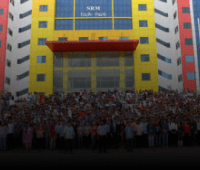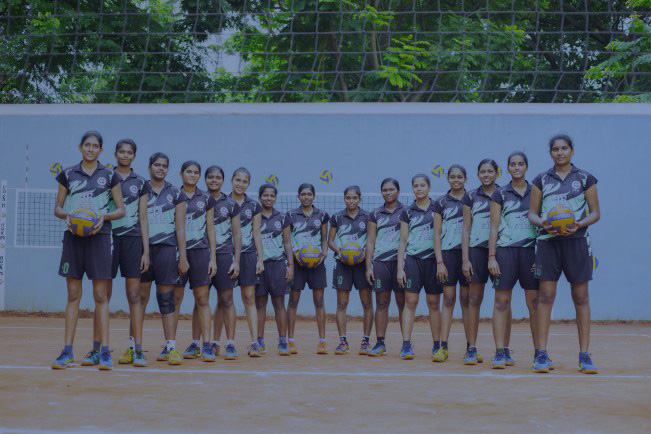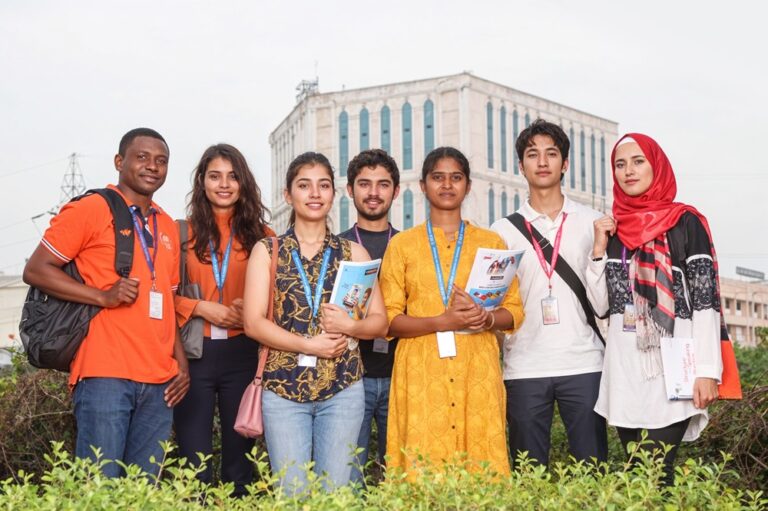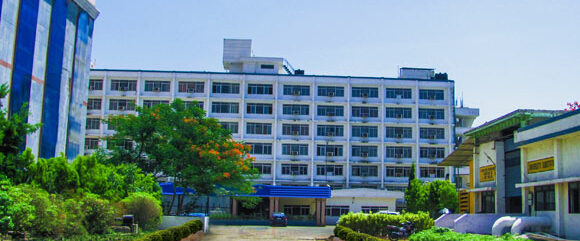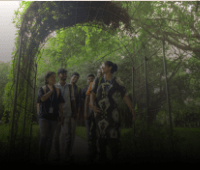In today’s rapidly evolving world, the importance of diversity and inclusion in education cannot be overstated. In particular, Humanities education plays a crucial role in shaping individuals’ perspectives, fostering critical thinking skills, and promoting empathy and understanding towards diverse cultures and experiences. In this blog, we will explore the significance of diversity and inclusion in Humanities education and how the SRM Faculty of Science and Humanities, located in Kattankulathur, embraces these principles through its unique SRM Approach.
I. The Significance of Diversity and Inclusion in Education
Shaping Perspectives and Promoting Critical Thinking
Humanities education provides students with the opportunity to explore a wide range of subjects, including English & foreign languages, commerce, journalism, statistics, and more. By incorporating diverse voices and perspectives into the curriculum, students are exposed to different worldviews, challenging their preconceived notions and fostering critical thinking skills. This exposure allows them to develop a more nuanced understanding of complex societal issues and encourages them to question the status quo.
Fostering Empathy and Understanding
One of the key benefits of Humanities education is its capacity to cultivate empathy and understanding towards diverse cultures, experiences, and perspectives. Through the study of literature, for instance, students can step into the shoes of characters from various backgrounds, gaining insight into their struggles, aspirations, and values. This process of empathetic engagement nurtures compassion and broadens students’ perspectives, enabling them to navigate a multicultural world with empathy and respect.
Preparing Students for a Globalized Society
In today’s interconnected world, the ability to navigate diverse cultural landscapes is essential.Masters of Science and Humanities education equips students with the knowledge and skills needed to engage with people from different backgrounds and cultures. By studying the history, literature, and philosophies of various civilizations, students gain a global perspective, enhancing their intercultural competence and preparing them to thrive in a multicultural society and global workforce.
II. SRM Faculty of Science and Humanities: A Commitment to Diversity and Inclusion
The SRM Faculty of Science and Humanities, located in Kattankulathur, is an esteemed institution committed to providing quality education in the field of humanities. With its diverse student body and dedicated faculty, the college embraces the principles of diversity and inclusion to create an inclusive learning environment where every student’s voice is valued.
Unique SRM Approach
The SRM has developed a distinctive approach to education that prioritizes diversity and inclusion. The approach encompasses various elements that foster a supportive and inclusive learning environment for students.
Celebrating Differences and Exploring Perspectives
At SRM, students are encouraged to celebrate their individuality and appreciate the diverse perspectives of their peers. The college promotes an environment where students feel comfortable expressing their thoughts, engaging in constructive debates, and challenging conventional ideas. This encourages intellectual growth and allows students to develop a broader understanding of the world.
Comprehensive Curriculum: A Multidisciplinary Approach
The college offers a comprehensive curriculum that exposes students to a wide range of Humanities subjects. From literature to history, philosophy to sociology, and anthropology to cultural studies, the curriculum is designed to provide a holistic understanding of human experiences, cultures, and societies. By studying diverse subjects, students gain a well-rounded education that prepares them for the complexities of the world.
Inclusive Faculty Representation: Valuing Diverse Experiences
SRM Faculty of Science and Humanities recognizes the importance of having faculty members from diverse backgrounds. By ensuring the representation of different cultures, ethnicities, and perspectives, the college creates a rich learning environment.
Engaging Seminars, Workshops, and Guest Lectures
To further promote diversity and inclusion, the SRM Faculty of Science and Humanities organizes regular seminars, workshops, and guest lectures on topics related to diversity, equity, and social justice. These events provide students with opportunities to engage in meaningful conversations, hear from experts in the field, and gain a deeper understanding of the challenges faced by marginalized communities. Such engagements foster empathy, awareness, and a commitment to social change.
Experiential Learning: Stepping Outside Comfort Zones
Emphasizing experiential learning as a means to develop a deeper understanding of diverse communities and cultures. Through immersive projects, students have the opportunity to engage directly with different communities, both locally and globally. This hands-on approach enables them to gain practical insights into real-world challenges faced by marginalized groups and fosters a sense of social responsibility.
III. SRM Approach in Action: Promoting Diversity and Inclusion
Curriculum Design: Incorporating Diverse Voices
The curriculum at SRM Faculty of Science and Humanities is designed to incorporate diverse voices and perspectives. In literature courses, students study works by authors from different countries, backgrounds, and time periods. This exposure to diverse literary traditions broadens their literary horizons and deepens their appreciation for global storytelling.
Faculty Recruitment: Diverse Experiences and Perspectives
SRM places great emphasis on recruiting faculty members with diverse experiences and perspectives. This ensures that students are exposed to a variety of teaching styles, methodologies, and worldviews. Faculty development programs are also in place to encourage inclusive pedagogy and foster an inclusive classroom environment.
Seminars, Workshops, and Guest Lectures: Facilitating Dialogue and Awareness
The college regularly hosts seminars, workshops, and guest lectures on topics related to diversity and inclusion. These events provide a platform for open and respectful dialogue, allowing students to explore social justice issues, challenge their own biases, and gain a deeper understanding of the experiences of marginalized communities. By creating a safe space for such conversations, SRM promotes an environment of empathy, learning, and mutual respect.
Experiential Learning: Gaining Practical Insights into Real-World Challenges
SRM offers experiential learning opportunities that enable students to engage directly with diverse communities. Through projects and internships, students work alongside individuals from different cultural backgrounds, gaining a firsthand understanding of their experiences, challenges, and aspirations. This experiential learning approach nurtures empathy, cultural sensitivity, and a commitment to social justice.
Impact of the SRM Approach: Building Empathetic and Culturally Aware Individuals
Developing Critical Thinking Skills
The SRM Approach cultivates critical thinking skills by exposing students to diverse perspectives, encouraging them to question assumptions, and analyzing complex societal issues from multiple angles. This critical mindset equips students to navigate the complexities of the world and make informed decisions.
Nurturing Empathy and Cultural Sensitivity
By fostering an inclusive learning environment and providing opportunities for engagement with diverse communities, SRM Faculty of Science and Humanities nurtures empathy and cultural sensitivity among its students. This understanding and appreciation for different cultures and experiences empower students to interact respectfully and effectively in diverse settings.
Preparing Students for Diverse Work Environments
In an increasingly globalized workforce, employers value individuals who can work effectively with colleagues and clients from diverse backgrounds. The SRM Approach equips students with the intercultural competencies and communication skills necessary to succeed in diverse work environments, enhancing their career prospects and adaptability.
Contributing to a More Inclusive Society
By promoting diversity and inclusion in Humanities education, SRM Faculty of Science and Humanities prepares students to be agents of positive change in society. Graduates are empowered to challenge systemic inequalities, advocate for social justice, and contribute to building a more inclusive and equitable world.
Therefore, SRM’s commitment to diversity and inclusion in Humanities education is commendable. By incorporating diverse perspectives into the curriculum, fostering an inclusive learning environment, engaging in meaningful dialogue, and promoting experiential learning, SRM prepares students to become empathetic, culturally aware individuals ready to contribute positively to society. Through embracing diversity within Humanities education at all levels, SRM strives to create a truly inclusive learning environment that empowers students to navigate a diverse and interconnected world with compassion and understanding.
For more information, please visit the website SRM Faculty of Science and Humanities


